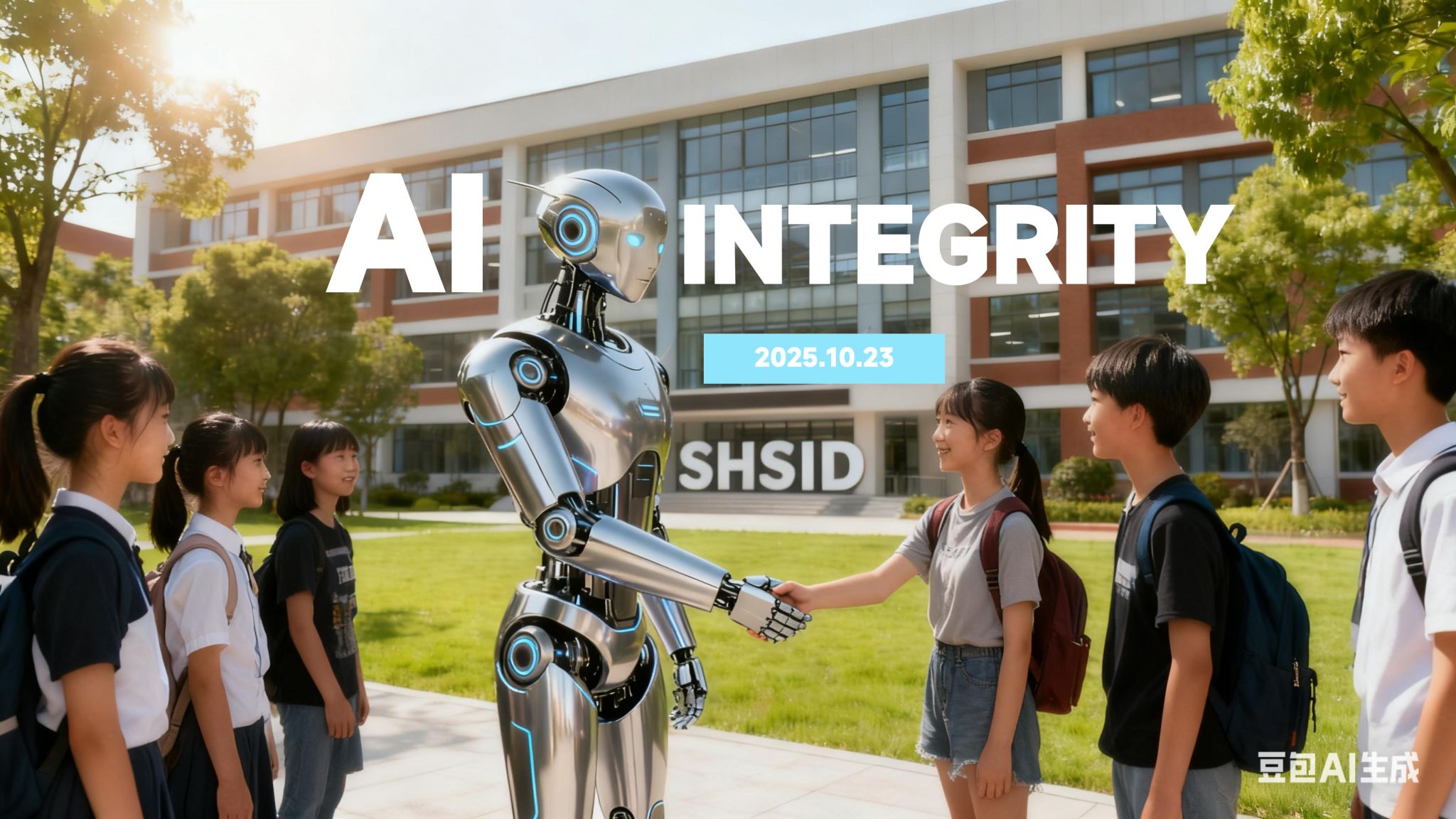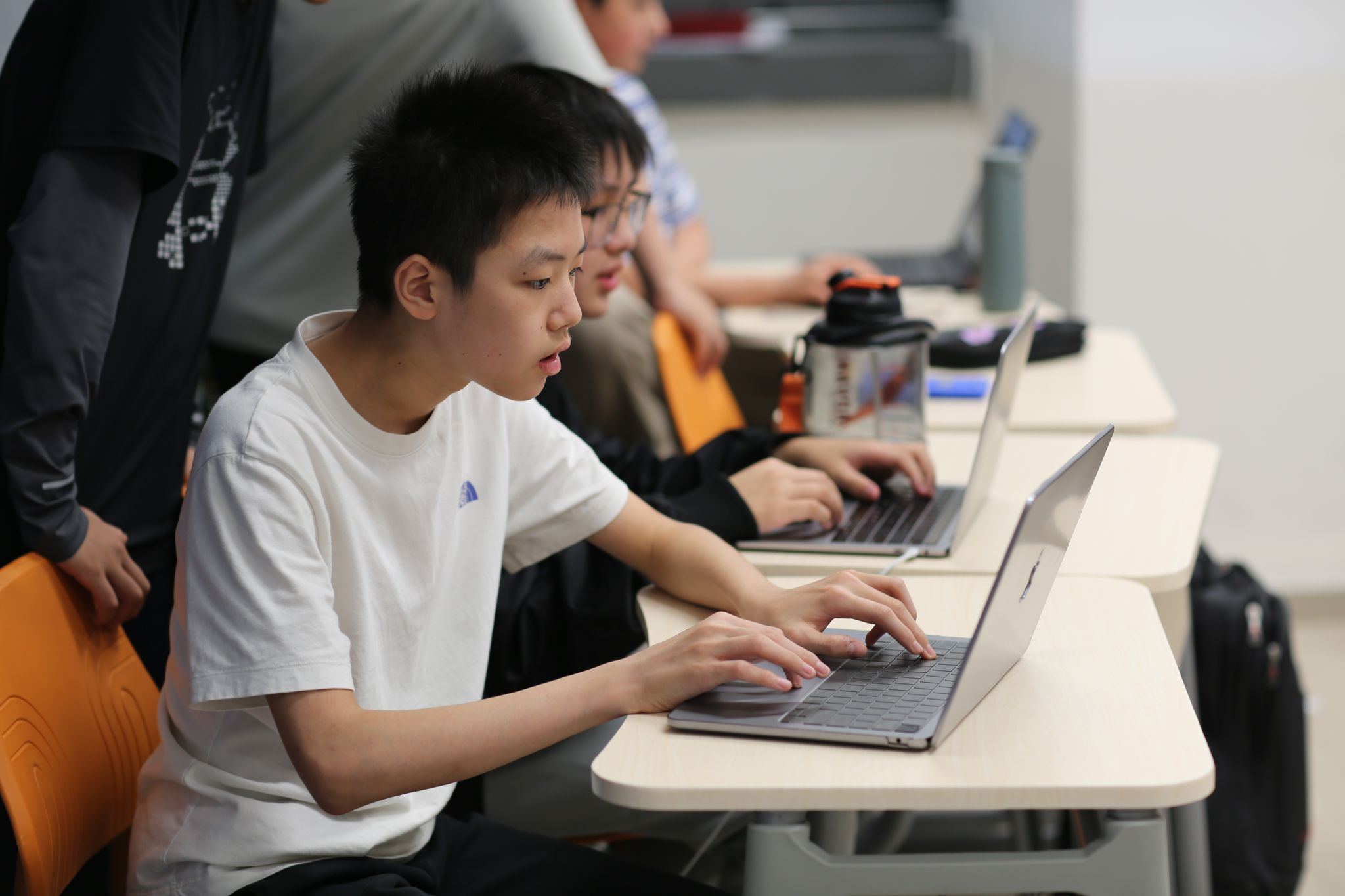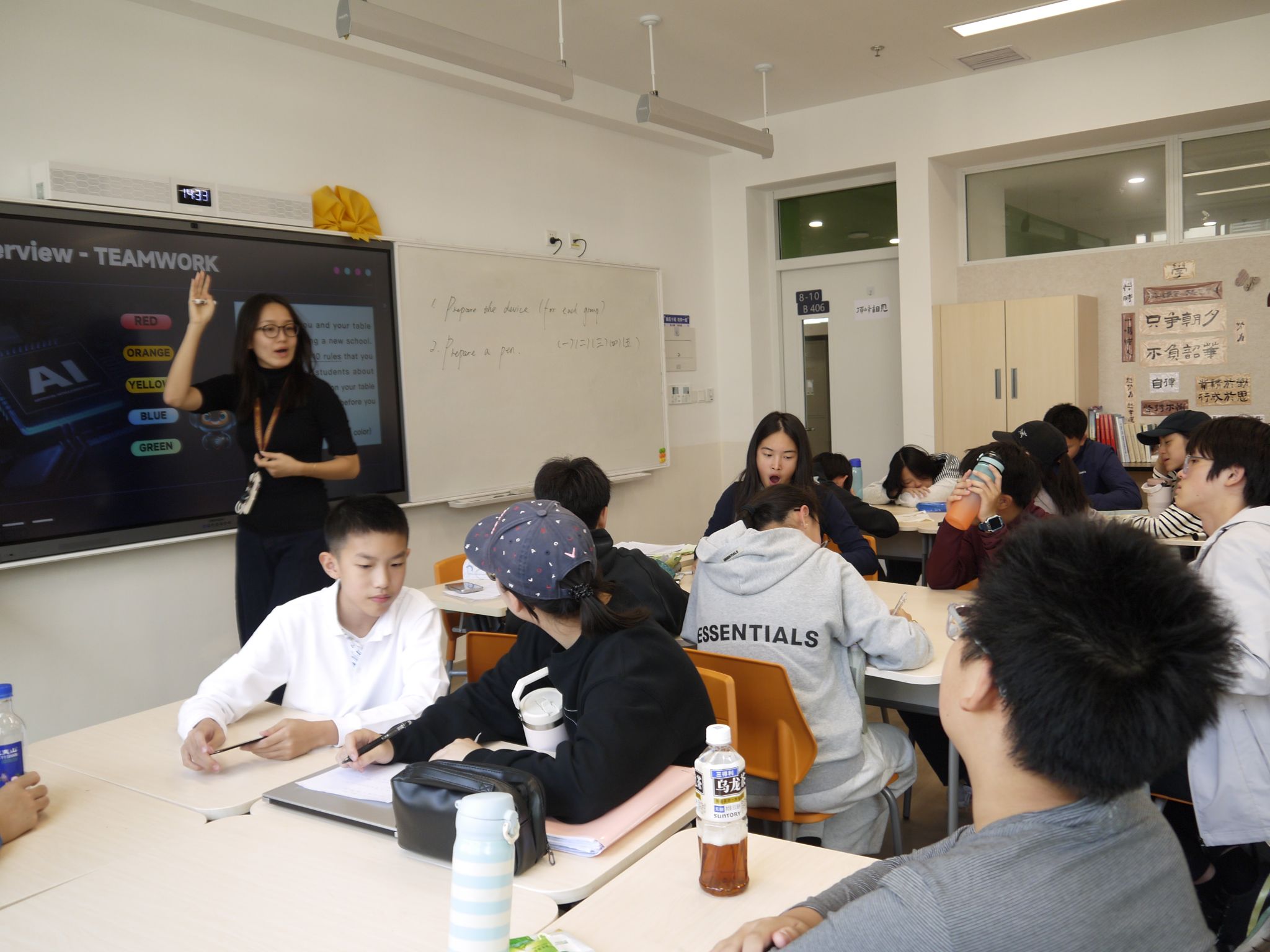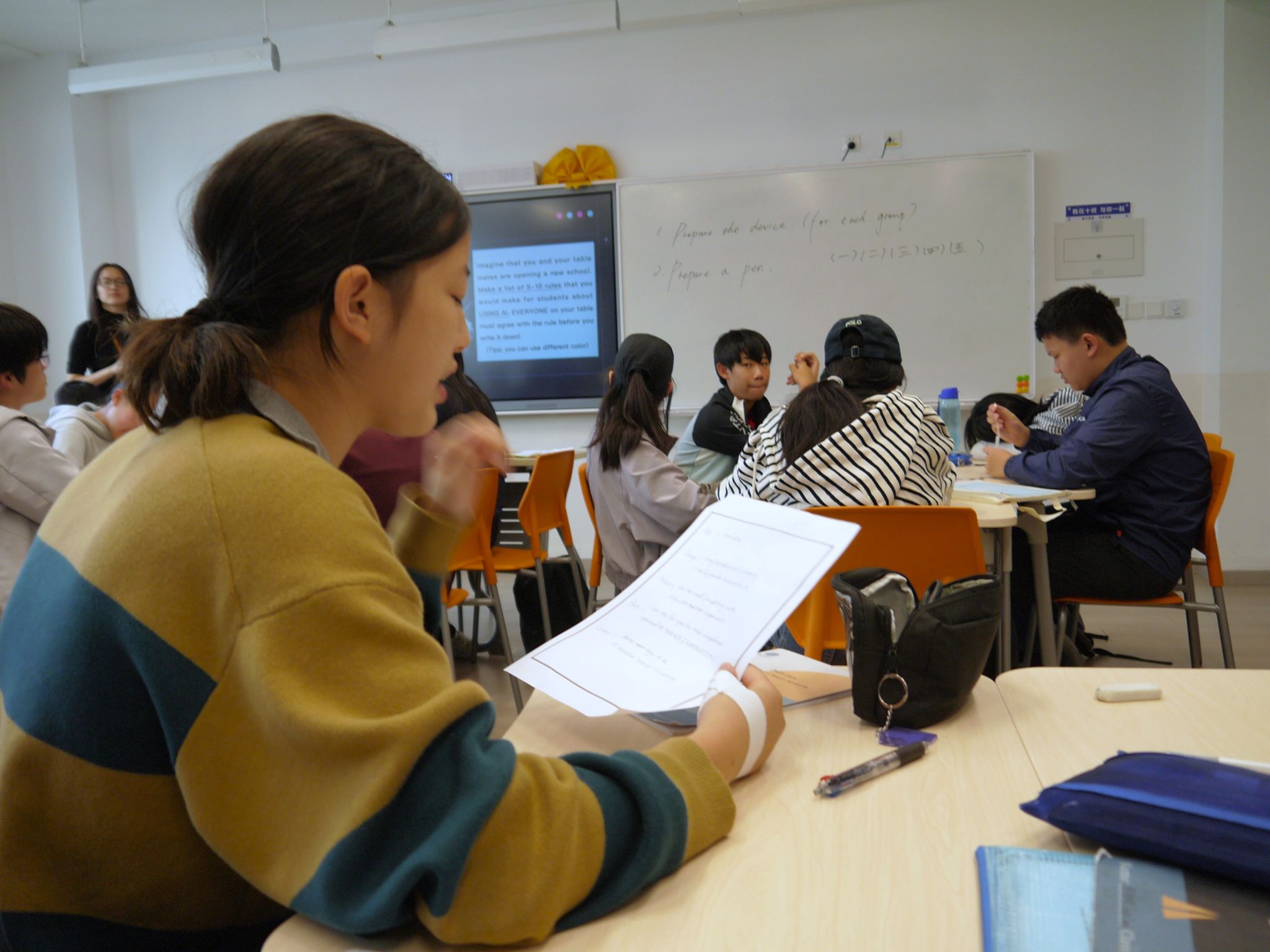-
ABOUT US
-
ACADEMICS
Curriculum Program
Departments
- English
- High School Chinese
- Primary and Junior School Chinese.
- High School Mathematics
- Middle School Mathematics
- Primary School Mathematics
- Music and Fine Arts
- Physical Education
- Physics
- Chemistry
- History and Geography
- Physical Science and Optional courses Department
- Middle School Biology
- High School Biology
- Social Sciences
- Computer Science
- Courses in Primary School
Achievements and Matriculations
College Counseling
Science & Technology Innovation Contest
Subject Competition
-
ARTS
-
ATHLETICS
-
AT SHSID
SHSID ∣ TIMES
PTSA
Club Exhibition
- 龙吟社
- Live 2 Drama
- Choir
- Hip-pop Dance Club
- The Primary School Dance Troupe
- Symposiums Club
- Biology Workshop
- You Shan
- VEX Robotic
- Peking Opera Club
- Baseball Club
- Model United Nations
- The World Scholar’s Cup
- Future Problem Solving Club
- United States Academic Pentathlon
- OM Club
- AMC Club
- Music for Patients
- SHSID Gazette
- Smile Charity
- Cultural Moments
- SciAcademy
- Stem Doge Alliance
- Chinese Debate Club
- IAA
- Mock Trial Club
- Zhengming Club
- Furry Friends
- GT-Racing
- Village Radio
- IMMC Club
- Creative Design and Intelligent Fabrication
- Future City Research Project
- ECOCAP
- AdvocaSEA
- SPDC
- Medishine
- Floorball Club
- Animusic MTC
- Wings Up
- All Booked
- Cyano
- Birding Community
Health and Wellness
Campus Safety
Cafeteria Service
-
ADMINISTRATION
-
ADMISSIONS
-
ALUMNI
Alumni Information
Honors Students
- Class of 2025
- Class of 2024
- Class of 2023
- Class of 2022
- Class of 2021
- Class of 2020
- Class of 2019
- Class of 2018
- Class of 2017
- Class of 2016
- Class of 2015
- Class of 2014
- Class of 2013
- Class of 2012
- Class of 2011
- Class of 2010
- Class of 2009
- Class of 2008
- Class of 2007
- Class of 2006
Who Studied at SHSID
SHS Foundation
-
DOCUMENTS
Puxi Campus Grade 8: Exploring AI Integrity: Learning with Honesty and Responsibility
Lead-in:
Embracing AI with Rationality, Shaping the Future with Integrity
AI has brought unprecedented convenience to learning— along with new challenges. In the age of intelligent tools, what students need is not only to reject plagiarism, but also to uphold integrity and pursue genuine growth through rational use. To help students form the right understanding of AI and cultivate a rational and honest attitude toward learning, SHSID Grade 8 carried out a week-long moral education program and practical activities themed "AI Integrity" from October 20 to 24.
Building upon last semester’s exploration of "AI Regulation," this themed week guided students through a four-stage journey of "Re-understanding– Reflection– Practice– Commitment." Through a coherent design of Morning Reflection, Youth Development (YD) inquiry, and hands-on creation, the program encouraged students to understand AI with rationality, clarify ethical boundaries through discussion, and embody academic integrity through innovation— leading them into a profound dialogue between intelligence and integrity.
Understanding AI:
From Trend to Reflection
On the first day of the CME themed week, students explored their peers' perspectives and habits through a questionnaire, gaining an initial understanding of both the potential and risks of AI in learning. Teachers introduced various AI tools such as ChatGPT, DeepSeek, and Doubao, prompting students to reflect: Is AI a helpful assistant— or a growing dependence? The classroom discussions were lively and engaging, filled with fresh insights and independent thinking from the students.
Analyzing AI:
Finding the Ethical Grey Zones
As the AI Integrity Week progressed, Grade 8 students engaged in deeper critical inquiry during their CME lessons. Through the study of real-life cases, students gained a clearer understanding of what constitutes plagiarism and learned which behaviors are officially recognized as plagiarism at SHSID.
Stepping into the "grey zones" of AI application, students analyzed familiar learning scenarios—from essay generation and information searches to image refinement and creative assistance. Through group debates and case analyses, they examined the reasonable boundaries and ethical limits of AI use in academic settings. In these discussions, students were encouraged to reflect on their motivation when using AI: "Am I using it to truly learn and think, or merely to finish a task?" The school encourages students to use AI rationally and responsibly, maintaining independent thinking throughout the process of exploration and innovation— allowing AI to become a tool for learning, not a replacement for learning.
In the Youth Development (YD) class, students applied the AI Scale for Students (Red, Orange, Yellow, Blue, Green) to evaluate and classify different AI usage scenarios, discussing which academic behaviors constitute appropriate assistance and which might cross the integrity boundaries defined for certain disciplines and assignments. Moreover, through hands-on interaction with AI-posing questions, refining prompts, and comparing generated outputs—students experienced the thinking and generation process of AI firsthand, cultivating critical thinking and self-reflection in practice.
Through this process of analysis and experimentation, students gradually realized that the essence of AI lies not in its capabilities, but in the judgment and responsibility of its users. This exploration laid the foundation for the next step-moving from evaluating AI behavior to designing responsible AI applications, allowing rational reflection and creative practice to inspire one another and truly embody the integration of "learning and doing."
Applying AI:
Thinking in Action
On October 23, the Youth Development (YD) class became a key component of the AI Integrity Week. In this session, students worked in groups to design their own school AI usage guidelines and took part in the "Our $100,000,000 AI Idea!" creative challenge— where they used AI tools to build an AI chatbot (Orange Level) and proposed innovative ideas for a future-oriented AI learning platform designed for students around the world.
Throughout the process, students not only developed critical thinking, information analysis and integration, communication, teamwork, technological adaptability, problem-solving, creativity, and self-reflection, but also enhanced their overall competence through authentic learning experiences. These essential skills will not only support their academic growth but also serve as core competencies for future study, careers, and life-empowering them to navigate the fast-changing digital era with confidence and integrity.
From Reflection to Action:
Growing with Wisdom and Integrity
This week of AI-themed moral education not only helped Grade 8 students understand the power and limits of AI, but also encouraged them to reflect on how to maintain rationality and integrity in an age of intelligence.
Technology can empower learning, but integrity shapes the future. Through the step-by-step design of the AI Integrity CME program, students moved from understanding technology to examining themselves, awakening a sense of responsibility through reflection and practicing integrity through action. On the intertwined path of reason and innovation, they have undergone a profound transformation-one that embodies both the wisdom of learning and the strength of character.




(Written by Liwen Pan
Pictures by Grade 8 Teachers
Reviewed by Ms. Shen Ying, Shiyu Wu, Louie Parker)